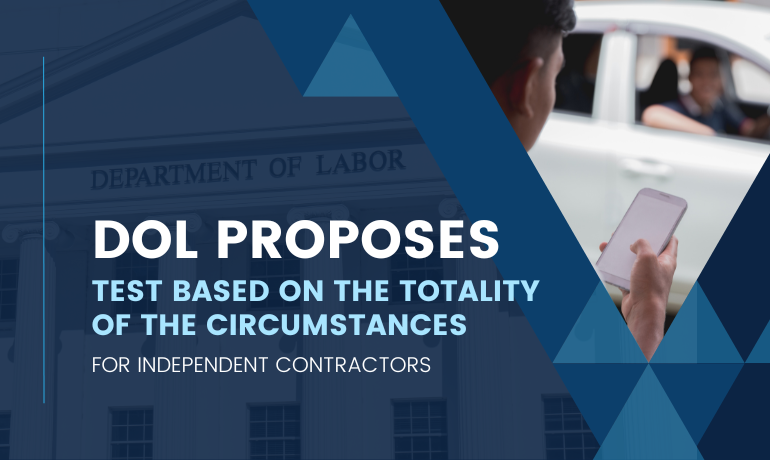Navigating the vast world of FCRA compliance can be overwhelming and confusing at times to say the least, not to mention the high stakes of noncompliance. Failing to abide by FCRA regulations puts your organization at risk for a potentially expensive and reputation-damaging lawsuit. For example, the federal fine for willful non-compliance are actual damages or statutory damages can be up to $1,000 per violation. But don’t worry! True Hire has compiled the information below to get you started on your way to understanding FCRA compliance. DISCLAIMER: This blog is being provided for general information purposes only and should not be construed as legal advice. For legal advice, please contact an attorney directly.
What does FCRA stand for?
The Fair Credit Reporting Act (FCRA) is U.S. Federal Government legislation enacted to promote the accuracy, fairness, and privacy of consumer information contained in the files of consumer reporting agencies (CRAs), such as True Hire. It was intended to protect consumers from the willful and/or negligent inclusion of inaccurate information in their credit reports.
What does it mean to be FCRA compliant when it comes to background checks?
The FCRA regulates the collection, dissemination, and use of consumer information, including consumer credit information. Background checks are included under the FCRA. Businesses must abide by the FCRA regulations regarding background checks in order for their screening process to be compliant.
What is adverse action?
Adverse action is not hiring an applicant or firing an employee based on background information obtained through a company in the business of compiling background information, e.g. True Hire.
Do the same background laws apply to volunteers, nannies/babysitters, and contractors?
Yes. According to a 2011 report released by the FTC entitled 40 Years of Experience with the Fair Credit Reporting Act: An FTC Staff Report with Summary of Interpretations, background checks conducted on volunteers, nannies/babysitters, and contractors are considered for “employment purposes”. See page 32 of the report.
How does True Hire help companies maintain FCRA compliance with their background check process?
True Hire ensures FCRA compliance in all 50 states to provide our customers the highest level of protection. We have tailored disclosure forms that comply with specific state and federal laws. We also have an FCRA Compliance Program that covers adverse action, updates on federal & state laws and regulations, and other tools to ensure clients are making informed decisions about prospective employees, volunteers and tenants. See below for more information on the specific ways True Hire helps businesses be FCRA compliant when it comes to background screening.
Before You Get Any Background Information
- Abide by the Equal Employment Opportunity (EEO) laws. For example, it’s illegal to check the background of applicants and employees when that decision is based on a person’s race, national origin, color, sex, religion, disability, genetic information (including family medical history), or age (40 or older).
- Tell the applicant or employee you may use the information for decisions about his or her employment. This notice must be in writing and in a stand-alone format. The notice can’t be in an employment application.
- Tell the applicant or employee of his or her right to a description of the nature and scope of any “investigative report”—a report based on personal interviews concerning a person’s character, general reputation, personal characteristics, and lifestyle.
- Get the applicant’s or employee’s written permission to do the background check. This can be part of the document you use to notify the person that you will get the report. If you want the authorization to allow you to get background reports throughout the person’s employment, make sure you say so clearly and conspicuously.
Using Background Information
- Again, apply the same standards to everyone, regardless of their race, national origin, color, sex, religion, disability, genetic information (including family medical history), or age (40 or older).
- Before you take an adverse employment action, you must give the applicant or employee a notice that includes a copy of the consumer report you relied on to make your decision as well as a copy of “A Summary of Your Rights Under the Fair Credit Reporting Act,” which you should have received from the company that sold you the report.
- After you take an adverse employment action, you must tell the applicant or employee (orally, in writing, or electronically) that he or she was rejected because of information in the report and that they have a right to dispute the accuracy or completeness of the report, and to get an additional free report from the reporting company within 60 days.
Disposing of Background Information
- Any personnel or employment records you make or keep (including all application forms, regardless of whether the applicant was hired, and other records related to hiring) must be preserved for one year after the records were made, or after a personnel action was taken, whichever comes later. This requirement may be extended for educational institutions and for state and local governments.
- Once you’ve satisfied all applicable record keeping requirements, you may dispose of any background reports you received. However, the law requires that you dispose of the reports—and any information gathered from them—securely.
How True Hire Can Help your Company Maintain FCRA Compliance
True Hire works diligently to help you navigate the ever-changing regulatory landscape of the background screening industry. Here’s what our commitment to compliance means for your organization:
- Access to years’ worth of industry expertise when it comes time to choose a screening program.
- Fully-vetted background authorization and disclosure packets tailored to comply with state and federal law.
- Industry-leading tools for managing your adverse action letters.
- Robust technology capabilities for color-coding results to fit your criteria matrix.
- Full compliance reviews of your current processes and documentation.
- Updates on major changes to regulations at the federal, state, and local level.
- Customized screening services to keep you compliant with industry-specific regulations (DOT, healthcare, etc.)
Resources & Downloads
Have Questions?
EEOC
www.eeoc.gov
info@eeoc.gov
800-669-4000
FTC
www.business.ftc.gov
1-877-382-4357
And contact your legal counsel
Sources:




